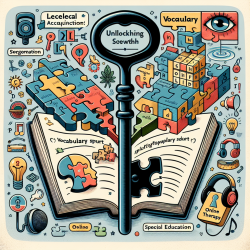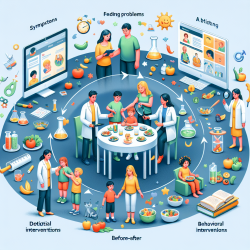Introduction: A New Way to Predict Adolescent Depression
Depression is a significant global health concern, often beginning in adolescence. Early identification is crucial for implementing preventive interventions that can improve outcomes. A recent study, "Identifying Depression Early in Adolescence: assessing the performance of a risk score for future onset of depression in an independent Brazilian sample," offers valuable insights for practitioners aiming to enhance their skills in identifying depression early.
Understanding the IDEA-RS Model
The Identifying Depression Early in Adolescence Risk Score (IDEA-RS) is a model developed in Brazil to estimate the probability of developing depression during adolescence. This model includes 11 sociodemographic variables and has been validated in multiple countries. The study tested the model's performance in a Brazilian High-Risk Cohort, focusing on adolescents with a high familial risk of psychiatric disorders.
Key Findings: How Practitioners Can Benefit
The study found that the IDEA-RS model could effectively predict the risk of depression beyond chance in an independent Brazilian sample. Here are some key takeaways for practitioners:
- Discrimination Ability: The model showed a 65% probability that a randomly selected adolescent who developed depression would have a higher risk score than one who did not.
- Model Calibration: The refitted model improved calibration, indicating that the model can be adjusted for better accuracy in different populations.
- Predictive Variables: The model uses easily obtainable predictors such as sex, skin color, and social behaviors, making it accessible for use in various settings.
Practical Steps for Implementation
Practitioners can leverage these findings by incorporating the IDEA-RS model into their assessment processes. Here are some practical steps:
- Training and Awareness: Educate staff about the model and its predictors to enhance early identification efforts.
- Data Collection: Ensure accurate data collection on the model's predictors to improve the reliability of risk assessments.
- Continuous Improvement: Encourage ongoing research and adaptation of the model to suit local contexts and populations.
Encouraging Further Research
While the IDEA-RS model shows promise, further research is needed to refine and validate it in diverse populations. Practitioners are encouraged to participate in or initiate studies that explore additional risk factors, including biological metrics, to enhance the model's predictive power.
Conclusion: A Step Forward in Mental Health
The IDEA-RS model represents a significant advancement in the early identification of adolescent depression. By integrating this tool into clinical practice, practitioners can play a crucial role in preventing the onset of depression and improving the mental health outcomes of young people.
To read the original research paper, please follow this link: Identifying Depression Early in Adolescence: assessing the performance of a risk score for future onset of depression in an independent Brazilian sample.










